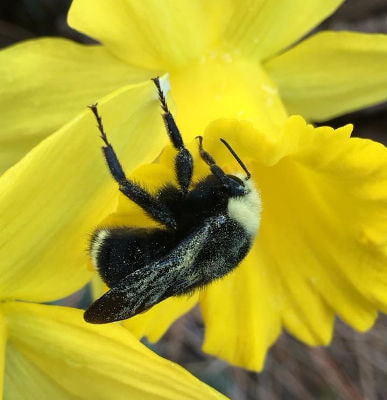Saving Venomous Species - for future lives

Why is it important to live "wildlife friendly?" The answer: you'll never know what species may save your life.
Here are five venomous species, some you may not be fond of, that could change the course of your life.
Spider venom. Proceedings of the National Academy of Sciences has published research that the venom of the deadly funnel-web spider of Australia can stop brain damage from a stroke. A University of Queensland research study shows a non-addictive alternative to opioid pain killers can be found in certain molecules of tarantula venom.
Snail venom. No, your garden variety snail is not venomous. But cone snails in the reefs of the Indo-Pacific area are some of the most toxic in the world and can kill you in just a few minutes. On the good side, their venom can be hundreds of times more powerful than morphine. Researchers are working on ways to harness this potential pain killer.
Snake venom. Snake venom is usually deadly because it disrupts the blood's clotting mechanism. This anti-clotting mechanism may help treat heart attacks by preventing the blood from clotting. Scientists are finding ways to save lives by using a protein purified from snake venom. Another new drug from snake venom, Captopril, helps with hypertension or high blood pressure.
Scorpion venom. Venom of several different animals is being researched for the treatment of cancer. The toxins in scorpion venom may help shrink tumors and slow their growth.
Bee venom. If you are allergic, stay away from bees. You may not realize, but bees also inject a type of venom. For those not allergic, bee venom therapy is being used in the treatment of arthritis, Lyme disease, asthma and more.
And that's just a few venomous yet medicinally helpful critters. There are also trees that fight malaria, sloths that have fungi in their fur that halve the growth of parasites and cancer cells, a pink-flowered Amazonian tree that may be effective against leukemia, and the list goes on.
Remember...Saving wildlife, saves us! It really does.
Here are five venomous species, some you may not be fond of, that could change the course of your life.
Spider venom. Proceedings of the National Academy of Sciences has published research that the venom of the deadly funnel-web spider of Australia can stop brain damage from a stroke. A University of Queensland research study shows a non-addictive alternative to opioid pain killers can be found in certain molecules of tarantula venom.
Snail venom. No, your garden variety snail is not venomous. But cone snails in the reefs of the Indo-Pacific area are some of the most toxic in the world and can kill you in just a few minutes. On the good side, their venom can be hundreds of times more powerful than morphine. Researchers are working on ways to harness this potential pain killer.
Snake venom. Snake venom is usually deadly because it disrupts the blood's clotting mechanism. This anti-clotting mechanism may help treat heart attacks by preventing the blood from clotting. Scientists are finding ways to save lives by using a protein purified from snake venom. Another new drug from snake venom, Captopril, helps with hypertension or high blood pressure.
Scorpion venom. Venom of several different animals is being researched for the treatment of cancer. The toxins in scorpion venom may help shrink tumors and slow their growth.
Bee venom. If you are allergic, stay away from bees. You may not realize, but bees also inject a type of venom. For those not allergic, bee venom therapy is being used in the treatment of arthritis, Lyme disease, asthma and more.
And that's just a few venomous yet medicinally helpful critters. There are also trees that fight malaria, sloths that have fungi in their fur that halve the growth of parasites and cancer cells, a pink-flowered Amazonian tree that may be effective against leukemia, and the list goes on.
Remember...Saving wildlife, saves us! It really does.

